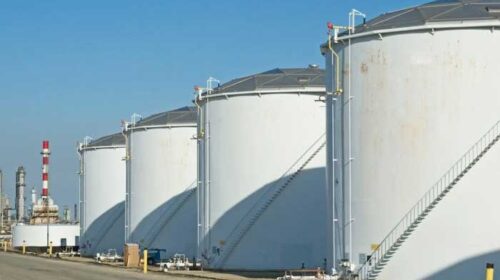Petroleum Division proposed exclusion of Kuwait Petroleum Corporation (KPC) premium from price computation of high speed diesel (HSD) for the April-June 2022 period due to price volatility in the global market, The News learnt on Tuesday.
According to a summary of the Petroleum Division, due to the volatile market conditions in the wake of Russia-Ukraine war and high demand of HSD in the forthcoming March-May harvesting season, the existing benchmarking appears unsustainable and oil marketing companies (OMCs) would suffer substantial losses.
“OMCs may be unable to import HSD leading to potential shortage of HSD across the country,” a copy of the summary available with The News revealed.
Giving the historical perspective, the summary stated that the Economic Coordination Committee while considering a summary dated July 21, 2020 submitted by the division had approved the parameters to determine ex-refinery/import prices or mogas (petrol) and HSD (diesel), whereby the base price was fixed on the basis of 15 days average FOB prices of the Arab Gulf market (published in the Platts Oilgram).
In the above base price, PSO’s last available average import premium and incidental charges (LC/nank charges, wharfage, port charges etc) were added to arrive at cost and freight prices for finalising the local consumer prices.
The premium (freight and supplier’s margin) is a lump sum cost of the supplier/exporter, which is either negotiated or offered in a tender process. PSO, being a public sector company, is obligated to procure imports in accordance with the Public Procurement Regulatory Authority (PPRA) rules/regulations.
As per existing arrangements, PSO imports its motor gasoline requirements entirely through spot tendering, while bulk of its HSD imports are made from KPC on the basis of a long-term agreement, which is revised/reviewed biannually.
The premium on long-term basis is lesser than the tendered premium. Presently, KPC premium for PSO’s HSD cargoes for January-June, 2022 is $2.40/bbl. In case, KPC is unable to meet PSO’s HSD demand, the same is imported from the spot market.
When PSO procures from both sources (KPC and spot market), the weighted average of KPC and spot premium is used as a benchmark to calculate the consumer prices, the summary stated.
Oil Companies Advisory Council (OCAC) pointed out that HSD premiums for the industry have been historically higher than PSO, implying that the industry was importing HSD at a relatively higher premium as compared to PSO’s benchmark premium. Due to this, the remaining OMCs are at a disadvantage.
This difference has now risen significantly due to the prevailing geopolitical situation. PSO’s tender for second fortnight of March, 2022 opened at $8.45/BBL whereas premiums are even higher in the open market. PSO did not receive any offer in their HSD tender for the first fortnight of April 2022.
Since the current dollar price is benchmarked on the basis of substantial imports by PSO from KPC at $2.4/BBL, any OMC importing at the PSO tendered premium at $8.45/BBL would incur a loss of up to Rs6.8/Liter, creating an unsustainable position for importers.
Therefore, OMCs have requested to urgently review this matter and revise the benchmarking process accordingly to save the industry from collapse, the summary stated.
The Petroleum Division in consultation with the Oil and Gas Regulatory Authority (OGRA) proposed that price differential claim premium needs to be excluded from price computation from April to June 2022.
Accordingly, the premium on HSD import may be benchmarked on PSO’s average tendered premium for the previous fortnight.
In case, there is no tender by PSO in a particular fortnight, the premium from previous tender may be used for calculating HSD ex-refinery price.
“This mechanism may be reviewed on recommendations of OGRA on a fortnightly basis,” the Petroleum Division proposed.







